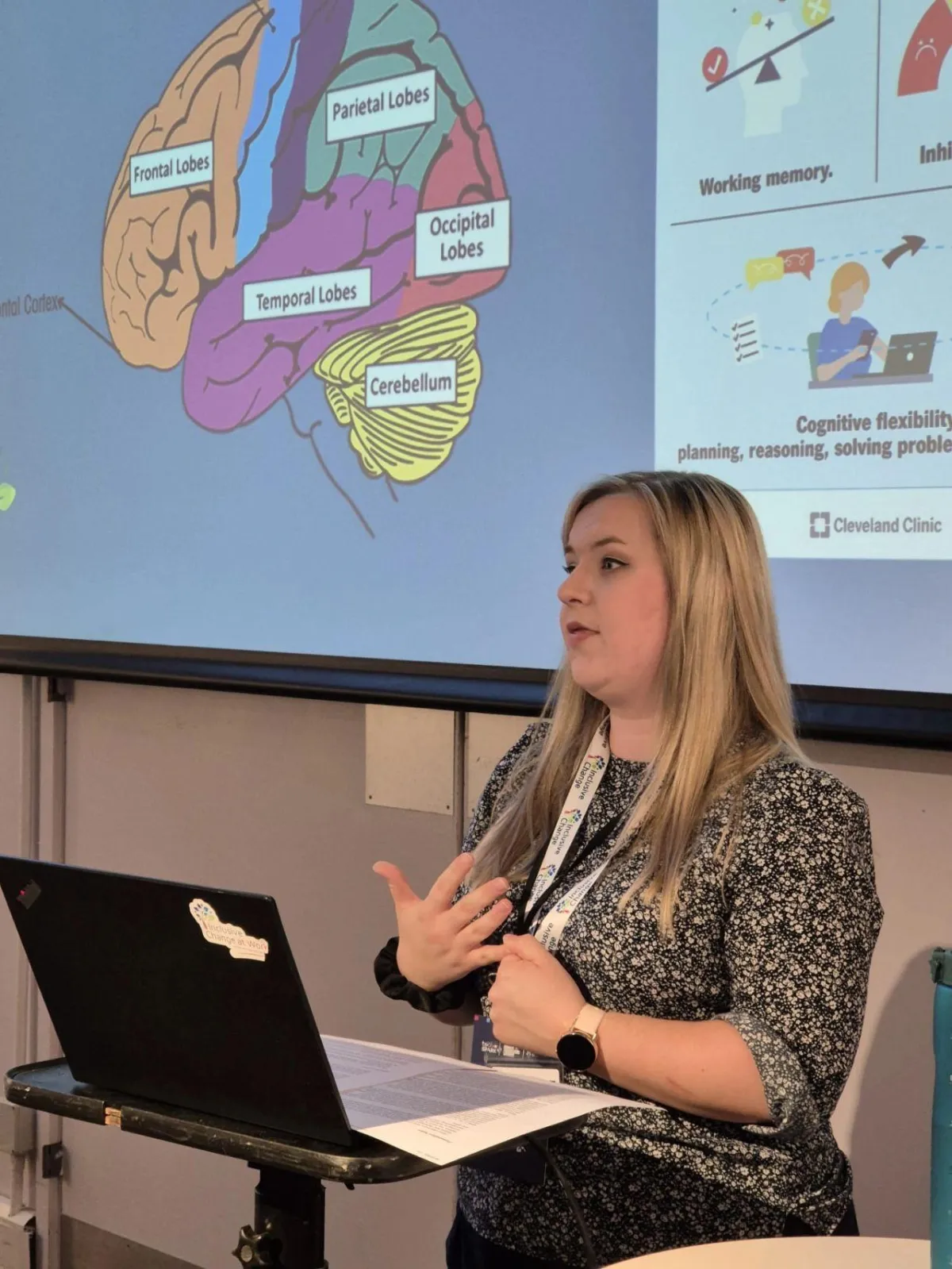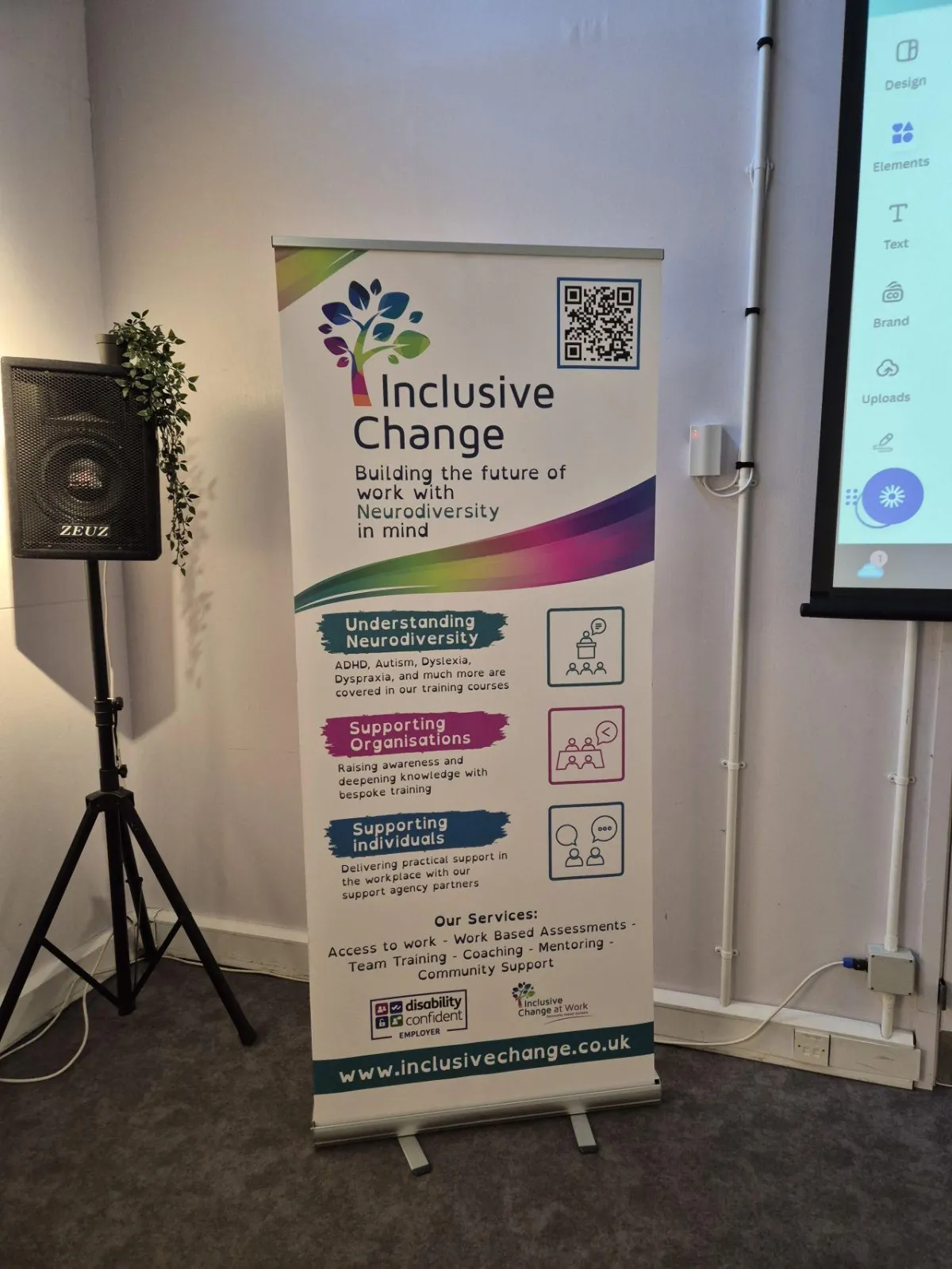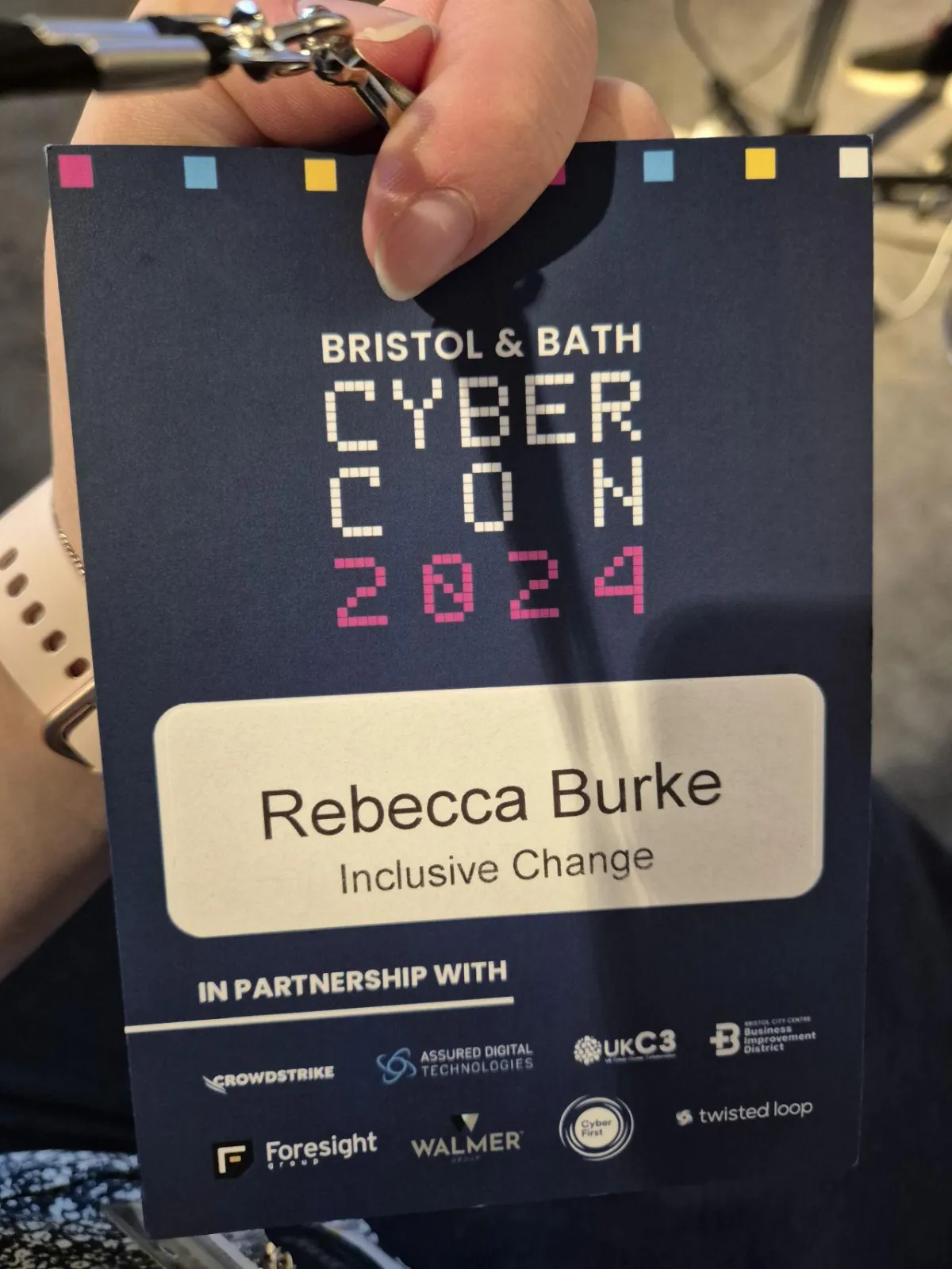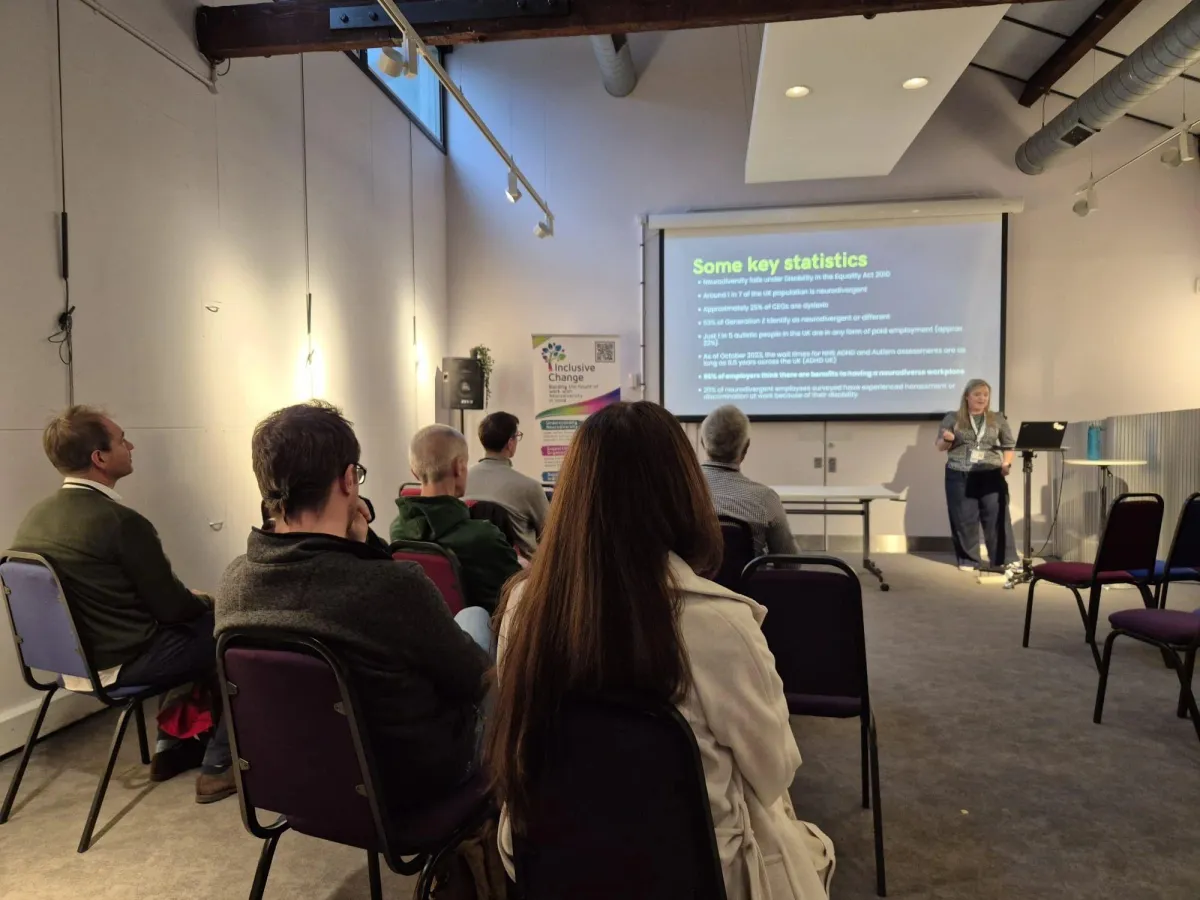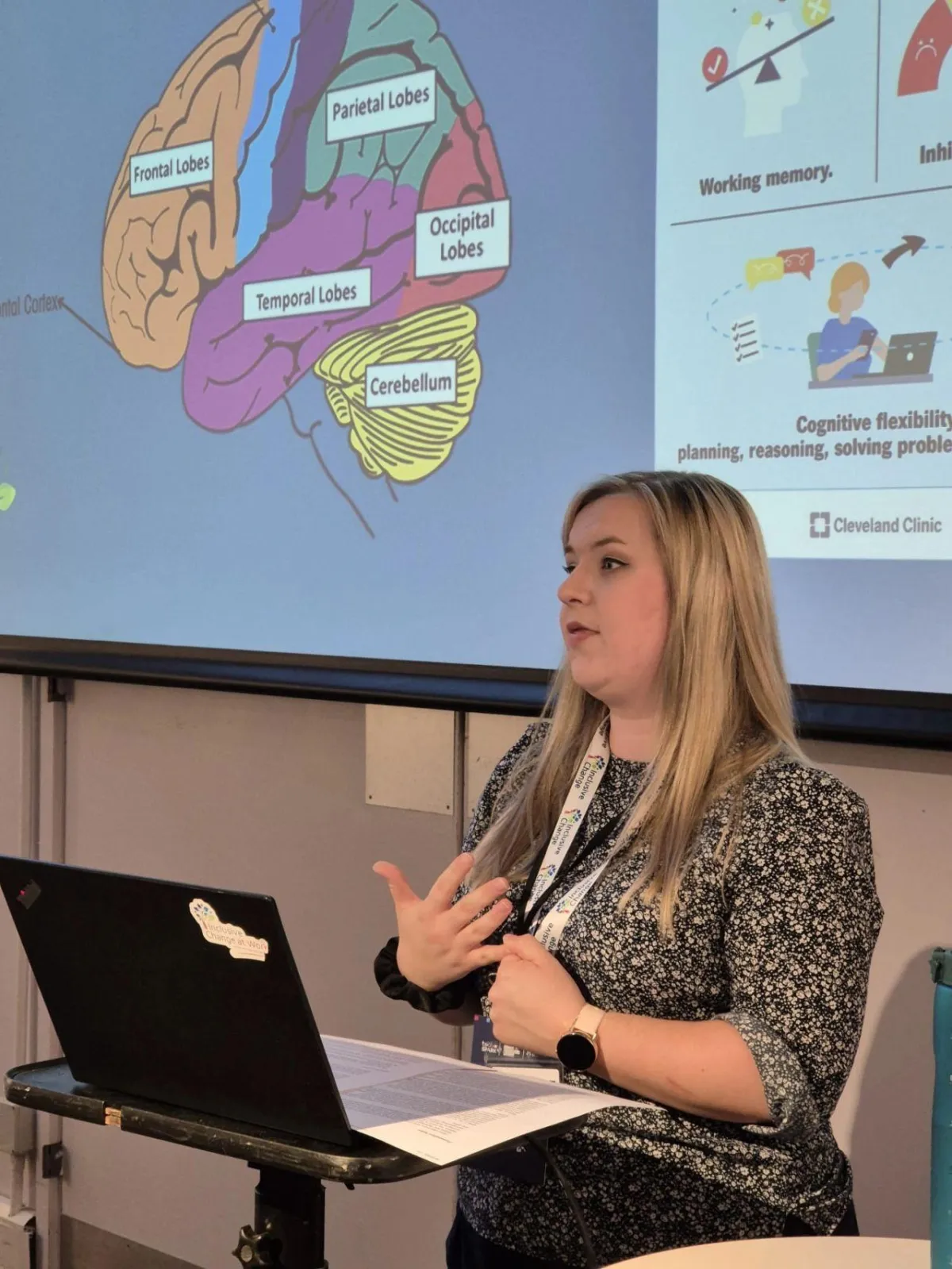
Becca Burke
Speaker
Empowering Neurodiversity in the workplace
Hi, I am Becca!
I'm Becca, a passionate advocate for neurodiversity and understanding ADHD in the workplace. Living with ADHD (combined presentation) myself, I bring a unique blend of professional experiences and personal insights to the conversation about creating inclusive, productive work environments. Equity in the workplace is especially important for us as neurodiverse folk; if given the adjustments and support we need, we can not only survive, but thrive at work.
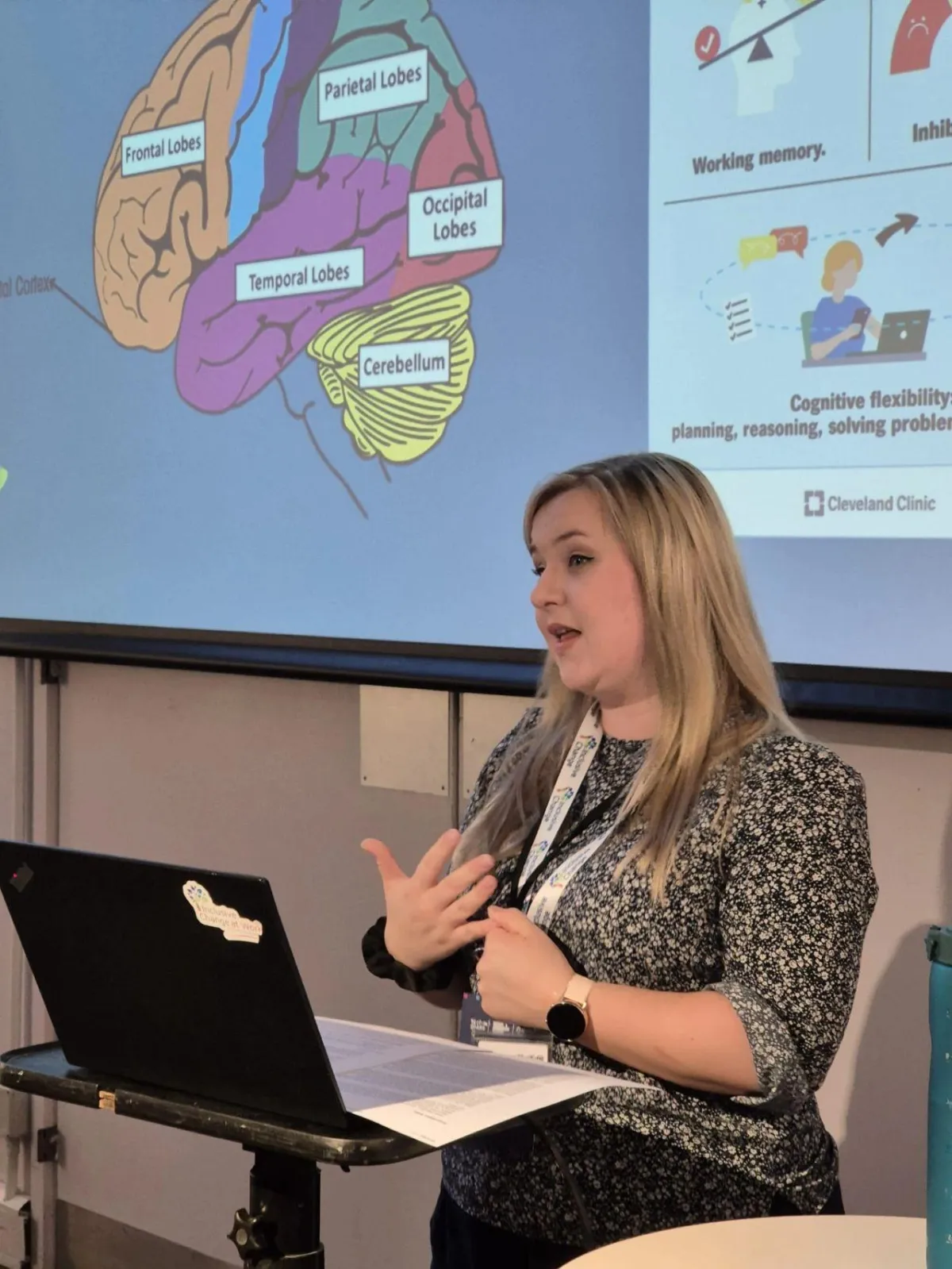
My professional journey
My career path has been varied, in true ADHD style! From my early days in customer relations to roles in sales and account management, I've always excelled in building relationships and understanding people's needs. My time at a FTSE 100 bank gave me a solid foundation for navigating large organisations and the politics of the office environment, and I then had to adapt quickly to the drastic changes of the Covid-19 Pandemic Lockdown. It was during this time, recognising the disruption to my routine, hyperfocusing on work outside of my core hours, and my inability to finish any tasks to completion, that I realised something wasn’t working for my brain.
Throughout my career, I’ve recognised that I was struggling, but never quite understood why. I saw so much of my own journey in the struggles I heard from other neurodiverse people, and I wanted to find a way that I could tangibly make a difference. After my own diagnosis in early 2024, I was inspired to become an ADHD Coach with Leanne Maskell's ADHD Works, and led to me being headhunted for Inclusive Change Ltd as Support Specialist.
My Areas of Expertise
- ADHD awareness and management strategies
- Education and training around ADHD for businesses
- Job coaching neurodivergent clients at work
- Rejection Sensitive Dysphoria awareness/training
- Business process improvement for neurodiverse workforce support
- Working with clients as a neurodiversity educated Virtual Assistant
- Neurodivergent talent recruitment and retention
- ADHD Works Level 1 Coach
Popular Discussion Topics
- Rejection Sensitive Dysphoria (RSD) & ADHD
- ADHD and the menopause
- ADHD screening in prisons
- ADHD and neurodiversity co-occuring traits
- ADHD celebrities
- Current research development
Living with ADHD
- Physiological difference in the brain
- ADHD facts and figures
- Common misconceptions
- Lived experience
- Interactive Q&A
ADHD in the Workplace
- Common challenges and strategies
- Strengths ADHDers bring to the workplace
- Challenges for us in the workplace
- Helpful strategies
- Reasonable Adjustments
- Equality Act 2010 protection
My Speaking Style
I pride myself on being engaging, insightful, and empathetic. My presentations blend personal anecdotes, research-based strategies, and interactive elements that leave audiences both informed and inspired. I like making complex topics accessible, and providing concrete, implementable solutions to common workplace challenges.
Why Choose Me?
At Inclusive Change, we understand your ‘Why,’ and meet you where you are on your journey as a business. Whether you're looking to educate your HR or leadership teams, or provide valuable insights to your entire organisation, I can help. I don’t believe that we as neurodivergent people need to change who we are to succeed; with the right support, education and awareness, we can be ourselves without compromise.
Work with me
Ready to transform your understanding of ADHD in the workplace?
Would you like me to run a workshop for you?
Get in touch using my calendar below.
Read my blog here: https://inclusivechange.co.uk/blog/b/adhd-and-me
Read more
The blog
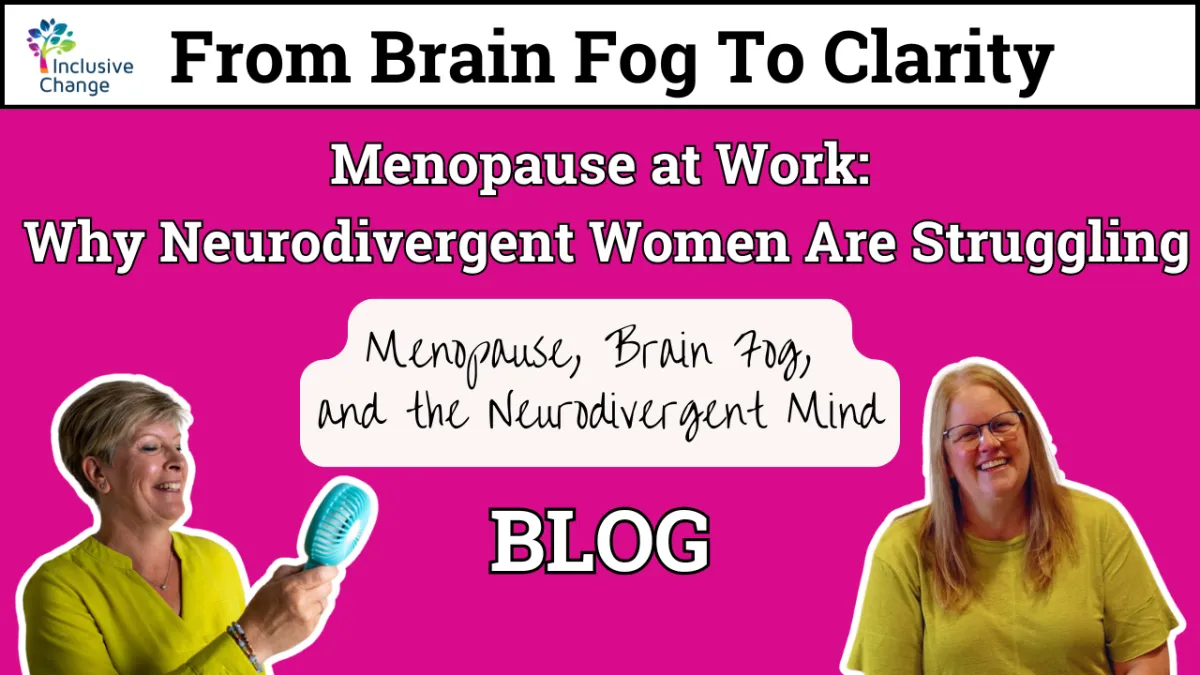
Menopause at Work: Why Neurodivergent Women Are Struggling
“I used to be able to hold it all together.”
It’s a quiet thought many women whisper to themselves between back-to-back meetings, cold tea, and a forgotten task they swear they completed.
For neurodivergent women in perimenopause or menopause, work can go from manageable chaos to complete overwhelm, fast. What used to be a bit of background noise becomes deafening. And the internal spiral begins.
Let’s talk about why.
You’ve Been Masking for Years
Maybe you’ve developed workarounds, scripts, social strategies. You’ve learned how to smile in meetings, nod when you’re lost, and quietly stay late to catch up.
That’s not nothing. That’s decades of invisible labour.
But masking is a load. And menopause lowers your bandwidth for masking. You can’t hold all the balls anymore, because your hormones are tossing them around, and your brain’s trying to juggle fog.
Executive Function Just…Stops Functioning
Neurodivergent brains often struggle with executive function: planning, prioritising, remembering, switching between tasks. Oestrogen helps with all of those. Guess what dips in menopause? Yep.
Suddenly, the calendar is confusing. The inbox is overwhelming. And you’re exhausted before your second meeting of the day.
It’s not laziness. It’s cognitive depletion.
Sensory Sensitivity Goes Up
The office is too loud. Your clothes itch. The lights feel aggressive. Coffee makes your heart race.
These aren’t quirks. They’re your nervous system saying: “I’m overstimulated and no one can see it.”
Menopause often increases sensory sensitivity—especially in neurodivergent women who were already managing it in silence.
Communication Gets Harder
When words vanish mid-sentence or you can’t process someone’s tone, it’s not incompetence. It’s cognitive load. But in the workplace, this can feel like failure.
And because neurodivergent women often internalise blame, we don’t ask for help. We assume we’re the problem.
You’re not. You’re human. You’re hormonal. And you’re doing your best.
What Can You Do?
You don’t need to quit your job or hide in the loo - though we’ve all done it. Here’s what actually helps:
•Block time in your diary for recovery, not just delivery
•Ask for agendas in advance, and give them too
•Use written follow-ups and summaries after meetings
•Wear noise-cancelling headphones when needed
•Advocate for sensory-safe spaces or hybrid working
•Talk to HR or a coach about adjustments, early, not at crisis point
And Here’s the Truth No One Says Out Loud
If you’re struggling to cope, it doesn’t mean you’re in the wrong job.
It might just mean you need new support, updated tools, and spaces that understand how your brain and hormones interact.
That’s exactly why we created the From Brain Fog to Clarity workshop. And beyond that, we offer one-to-one and group coaching to help you navigate work with compassion, not just coping.
Because surviving isn’t enough. You deserve to thrive.
Join us here:
Some of the Companies Inclusive Change Have Worked With So Far


Column Header
Lorem ipsum dolor sit amet consecetuer lorem ipsum
Organically grow the holistic world view of disruptive innovation
At the end of the day, going forward, a new normal that has evolved
Column Header
Lorem ipsum dolor sit amet consecetuer lorem ipsum
Organically grow the holistic world view of disruptive innovation
At the end of the day, going forward, a new normal that has evolved
Column Header
Lorem ipsum dolor sit amet consecetuer lorem ipsum
Organically grow the holistic world view of disruptive innovation
At the end of the day, going forward, a new normal that has evolved
Inclusive Change Ltd
The Brightwell, Bradbury House
Wheatfield Drive
Bradley Stoke, Bristol
BS329DB
Copyright 2025 - Inclusive Change Ltd
Companies House: 12412464
VAT NO: 352 1564 17
ICO Reg: ZB081779
UK Register of Learning Providers: 10090652

